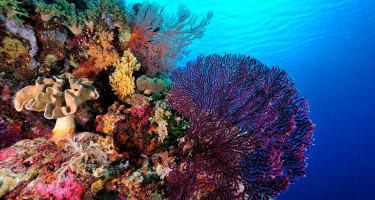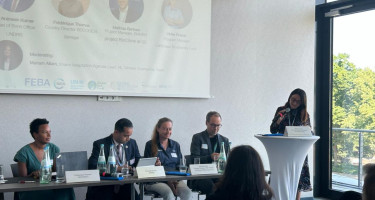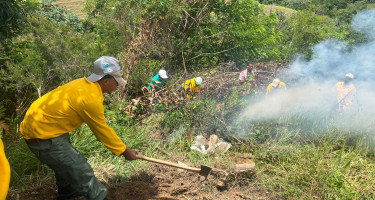After Mass Bleaching, Caribbean Experts Share Innovative Strategies for Coral Reef Resilience
The Caribbean Biodiversity Fund’s 'LINKUp' session in May brought together scientists, conservation leaders, and community practitioners to share innovative coral restoration strategies in the wake of the 2024 mass bleaching event.
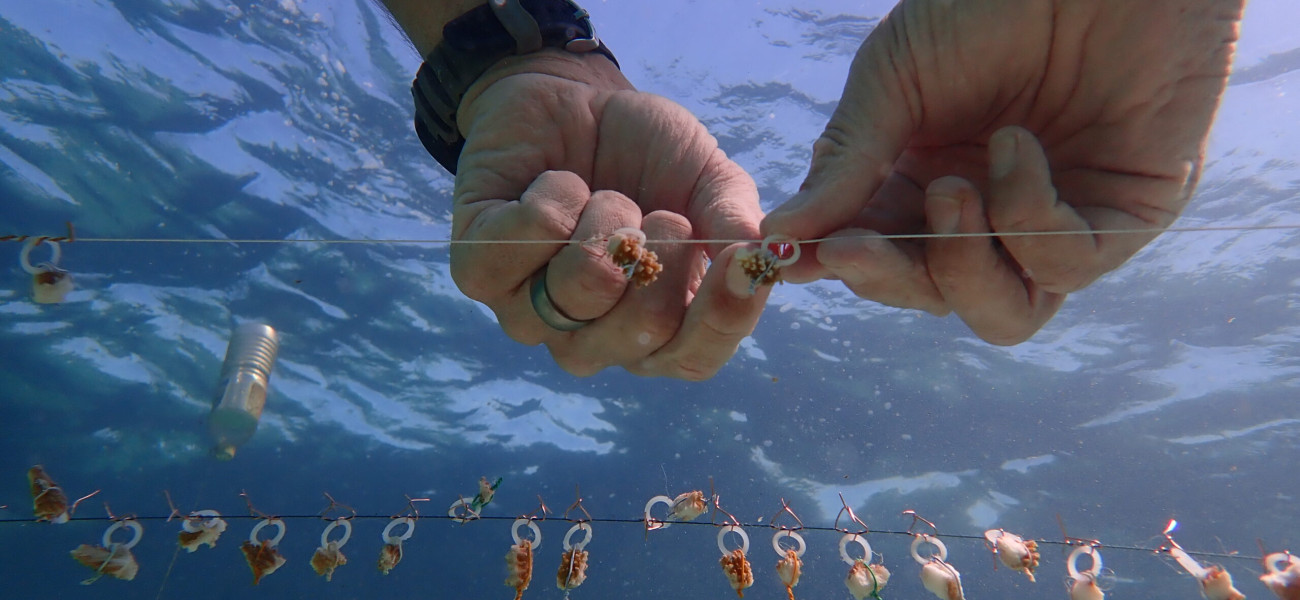
Underwater cord nursery in Jamaica. © Yadeira Davis, SeaScape Caribbean
The Caribbean Biodiversity Fund’s virtual LINKUp sessions are a space for Learning, Insight, Networking, and Knowledge-sharing (LINK) across the Caribbean conservation community. The session hosted on May 22, 2025, brought together scientists, conservation leaders, and community practitioners to share innovative coral restoration strategies in the wake of the 2024 mass bleaching event.
With over 80 international participants this session fostered rich dialogue and collaboration across the region. Four CBF Ecosystem-based Adaptation (EbA) Facility grantees shared field-based insights and resilient reef strategies.
Novel restoration approaches
The Ocean Foundation presented pioneering work in Cuba and the Dominican Republic, highlighting the use of both traditional asexual methods and innovative larval propagation to scale up coral restoration. These techniques improve genetic resilience, with early results showing high fertilization rates and successful outplanting. Partnerships across islands and early data collection were emphasized as keys to success.
Assisted Gene Flow and “genetic rescue”
CLEAR Caribbean stressed the urgency of “genetic rescue” after the devastating 2024 mass bleaching event, which wiped out most elkhorn and staghorn outplants in Saint Lucia and St. Vincent and the Grenadines. Assisted Gene Flow (AGF)—transporting heat-tolerant coral genotypes across islands—was presented as a lifeline for regional reefs, with strong government support emerging in the Windward Islands. The risk of inaction was framed as far higher than the controlled risks of AGF.
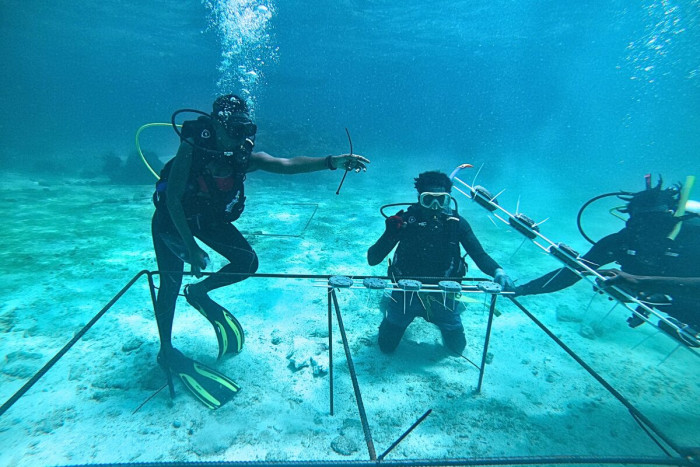
CLEAR Caribbean at Tobago Cays, St. Vincent & the Grenadines. © CLEAR Caribbean
Holistic restoration in Cuba
The Wildlife Conservation Society (WCS) showcased its Reefs of Hope project, which restored more than 1,700 hectares of coral, mangrove, and seagrass habitats across multiple protected areas. By integrating ecosystem-based adaptation, water quality management, sustainable fisheries, and the reintroduction of key species, the project positioned Cuban reefs as critical “Hope Spots” for regional resilience.
Coastal protection and wave attenuation
The University of the West Indies (UWI) Wave Attenuation via Natural Solutions using Elkhorn Corals (WANSEC) project and Seascape Caribbean team demonstrated how elkhorn coral thickets can serve as natural defenses against coastal flooding and erosion. Despite setbacks from Hurricane Beryl, the project identified heat-resistant coral lineages and developed innovative restoration tools like the Silvicultural Ring Mount and Coral Plinth to enable large-scale, cost-effective planting. These methods aim to restore coral reefs as both ecological and protective infrastructure
Knowledge sharing and networks
CBF also highlighted its Caribbean Coral Health Forum (CCHF), an online platform fostering collaboration among over 100 members, promoting knowledge exchange and coordinated action across the region.
Key Takeaways
The session highlighted that scaling up reef restoration will depend on both innovation and collaboration. Emerging technologies such as larval propagation and silviculture are making restoration more effective, while genetic tools like Assisted Gene Flow and selective breeding may prove critical to helping corals withstand climate change. While technology plays a critical role, lasting resilience requires institutional commitment. Government buy-in and regional cooperation are essential to scale solutions effectively, ensuring they are embedded within policy frameworks and sustained over time.
The CBF’s EbA Facility is implemented under the International Climate Initiative (IKI), with funding from the German Government through KfW.
- Country: Antigua and Barbuda, Bahamas, Barbados, Belize, Cuba, Dominica, Grenada, Haití, Jamaica, Dominican Republic, Saint Kitts and Nevis, Saint Vincent and Grenadines, Saint Lucia, Suriname, Trinidad and Tobago
- Project:
- Contact:
